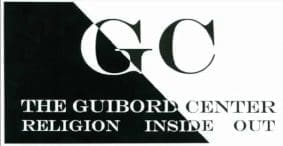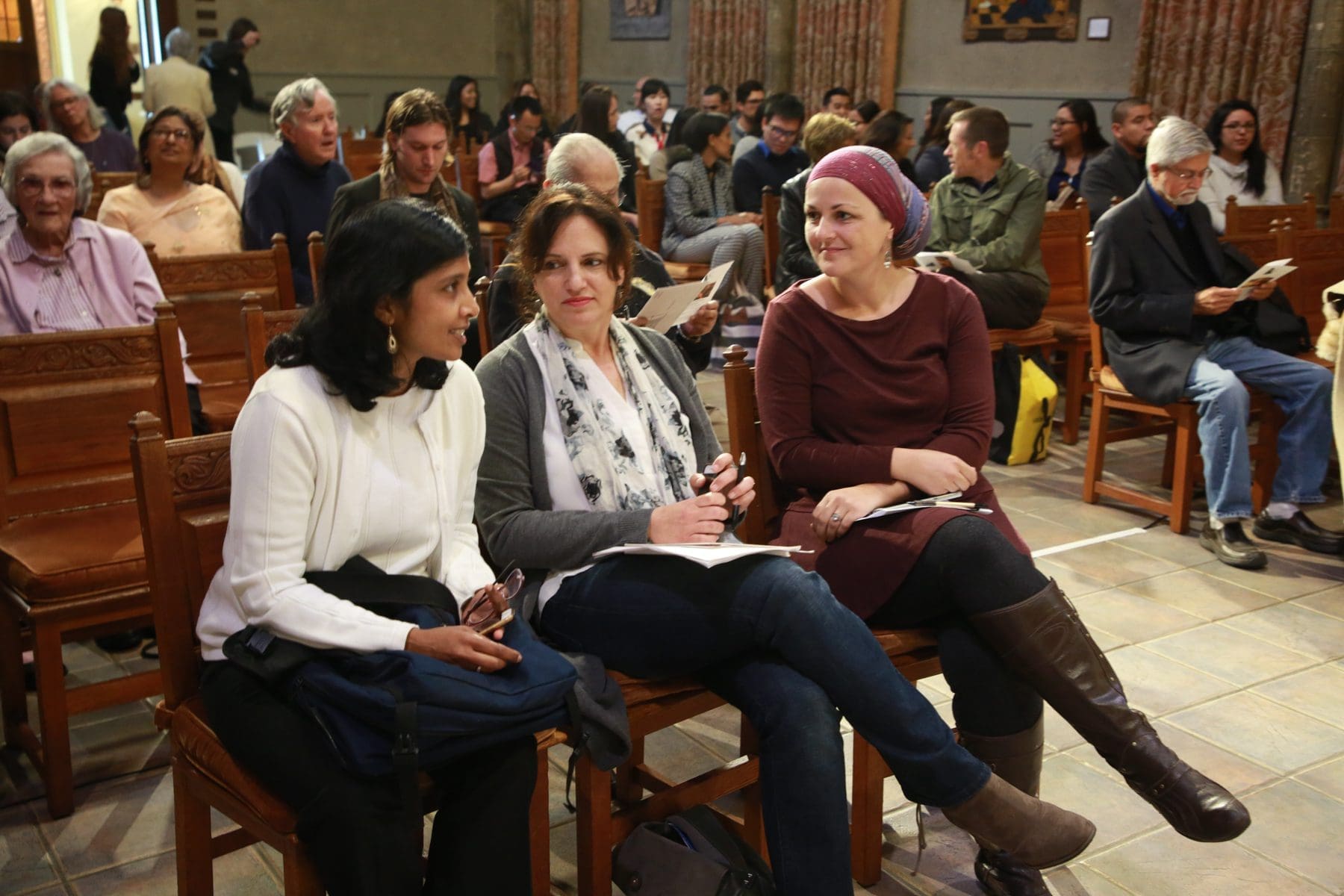
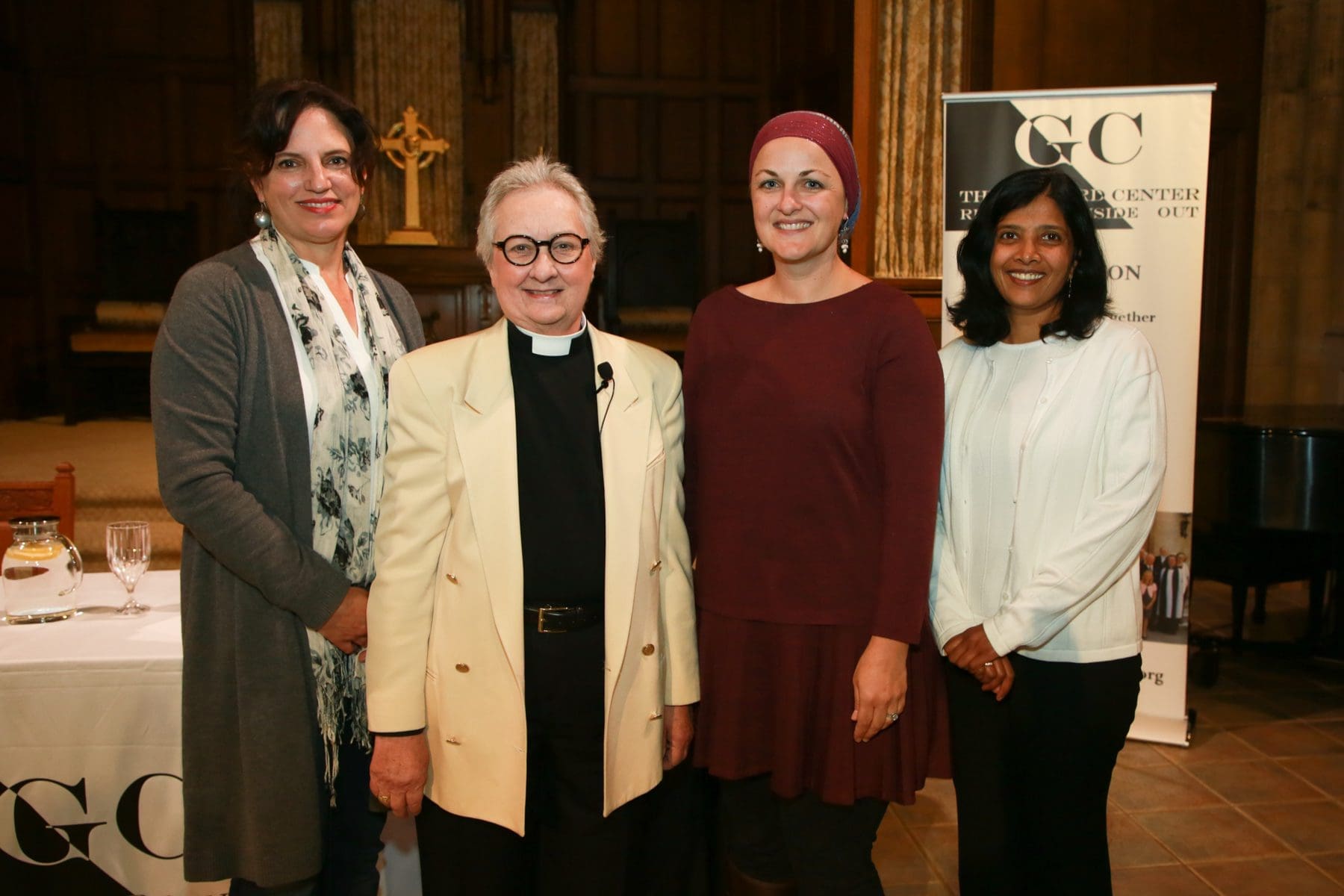
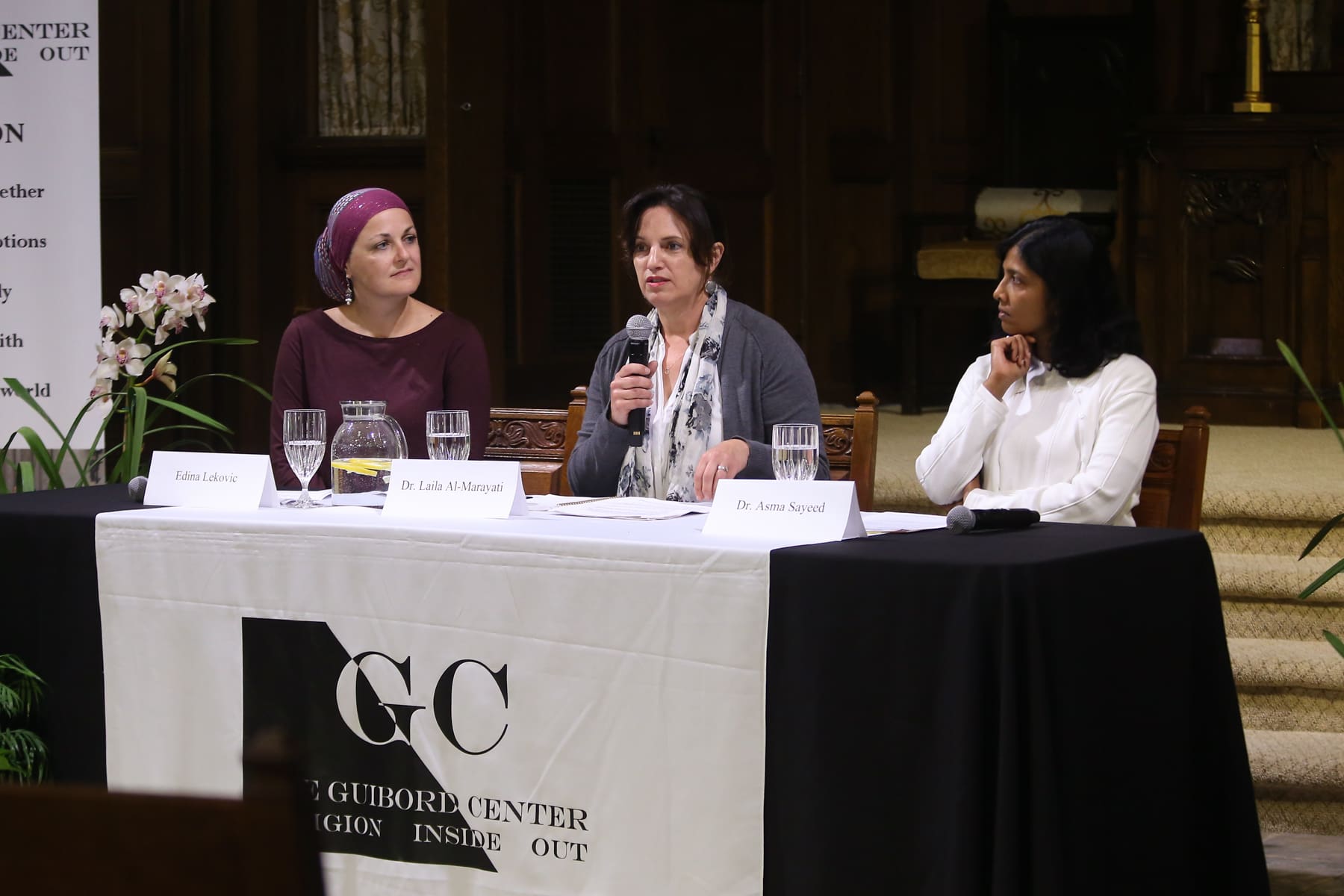
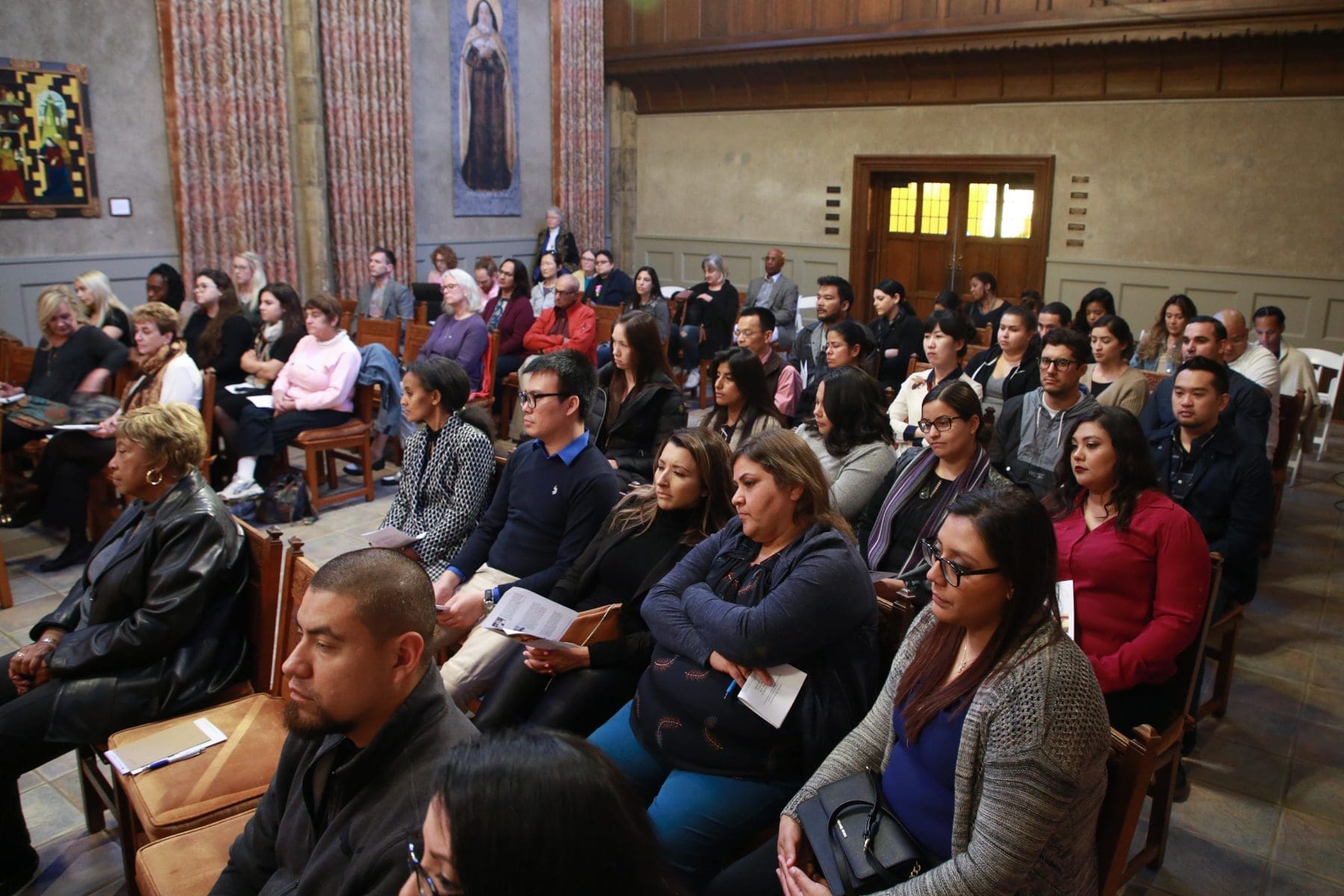
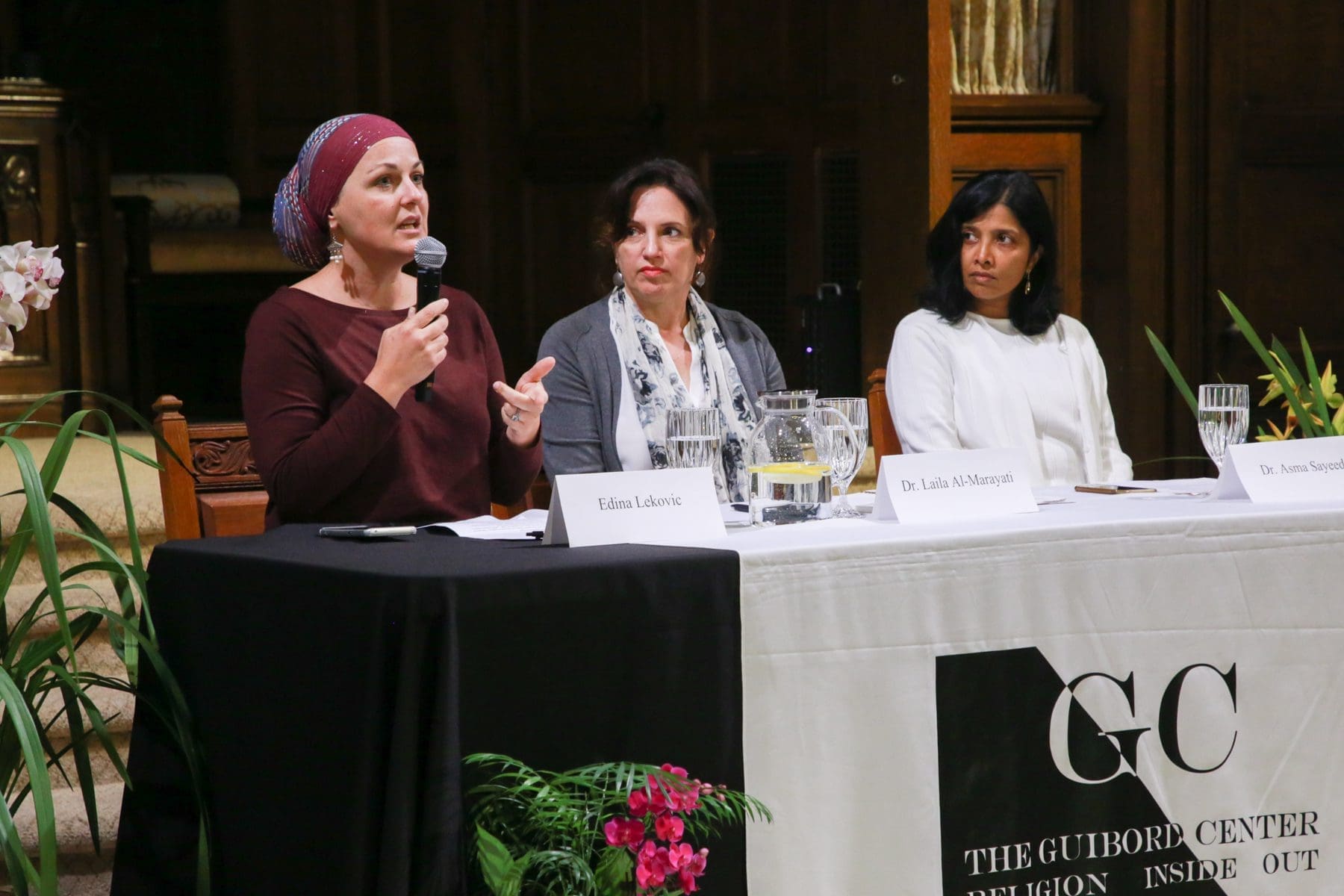
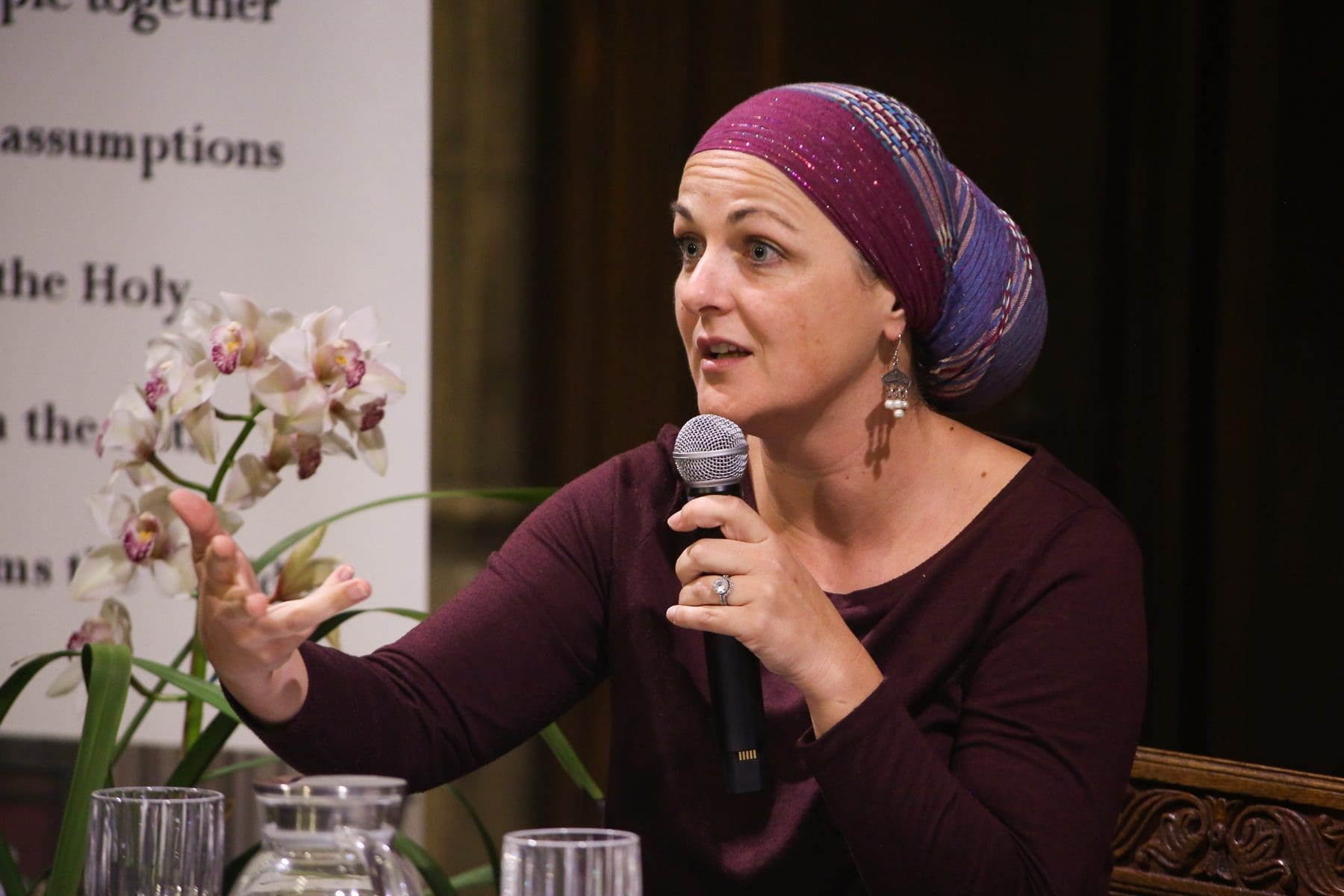
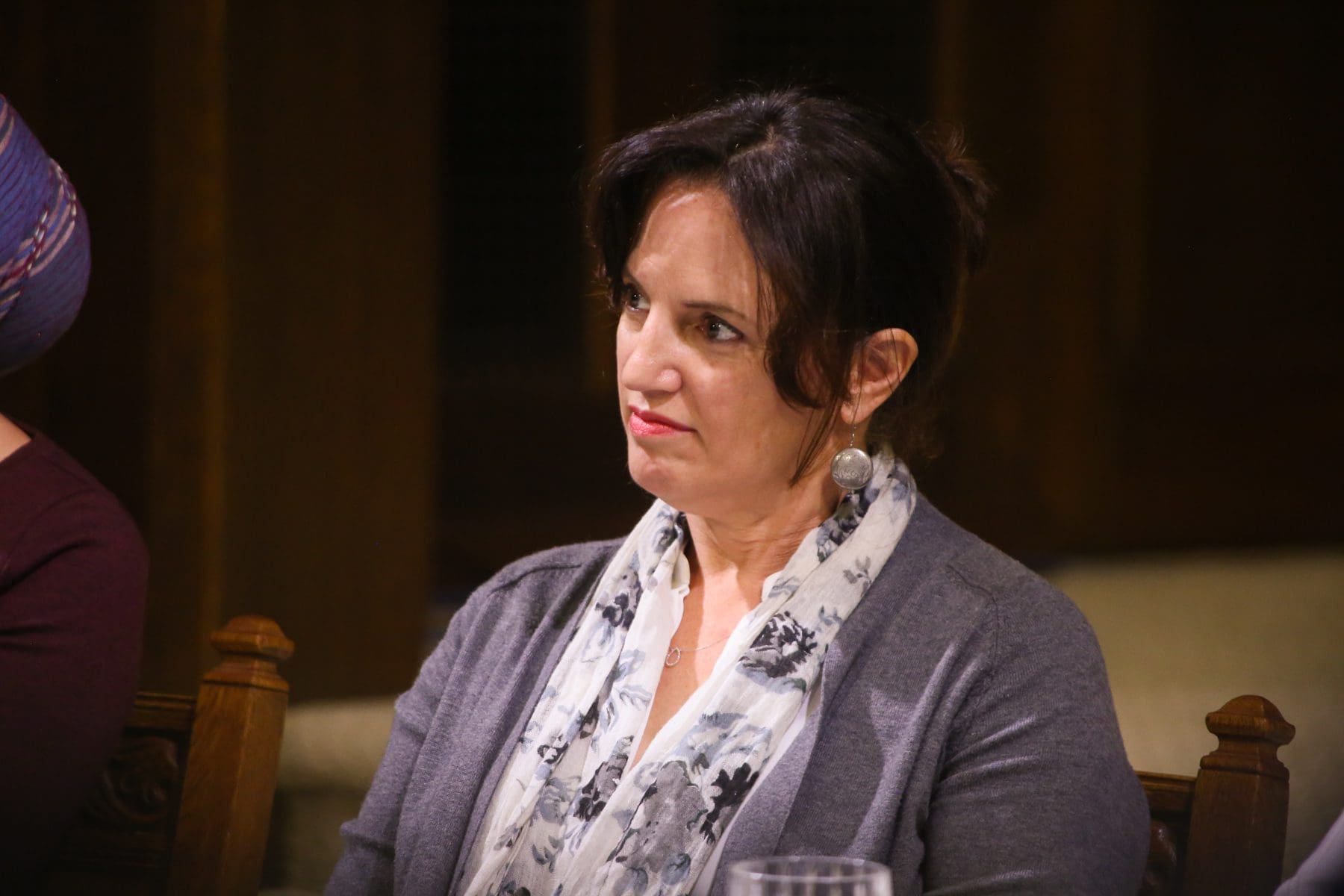
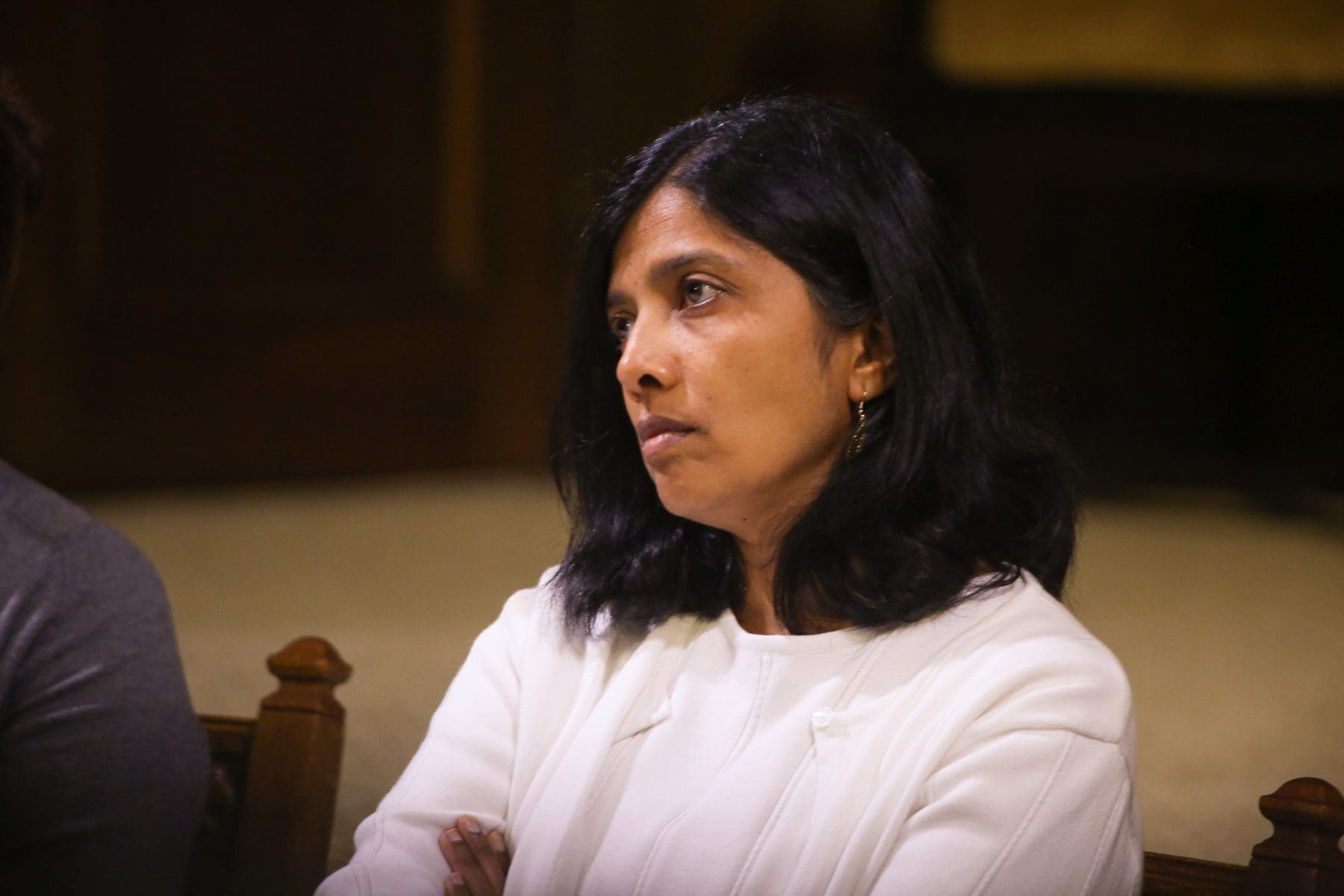
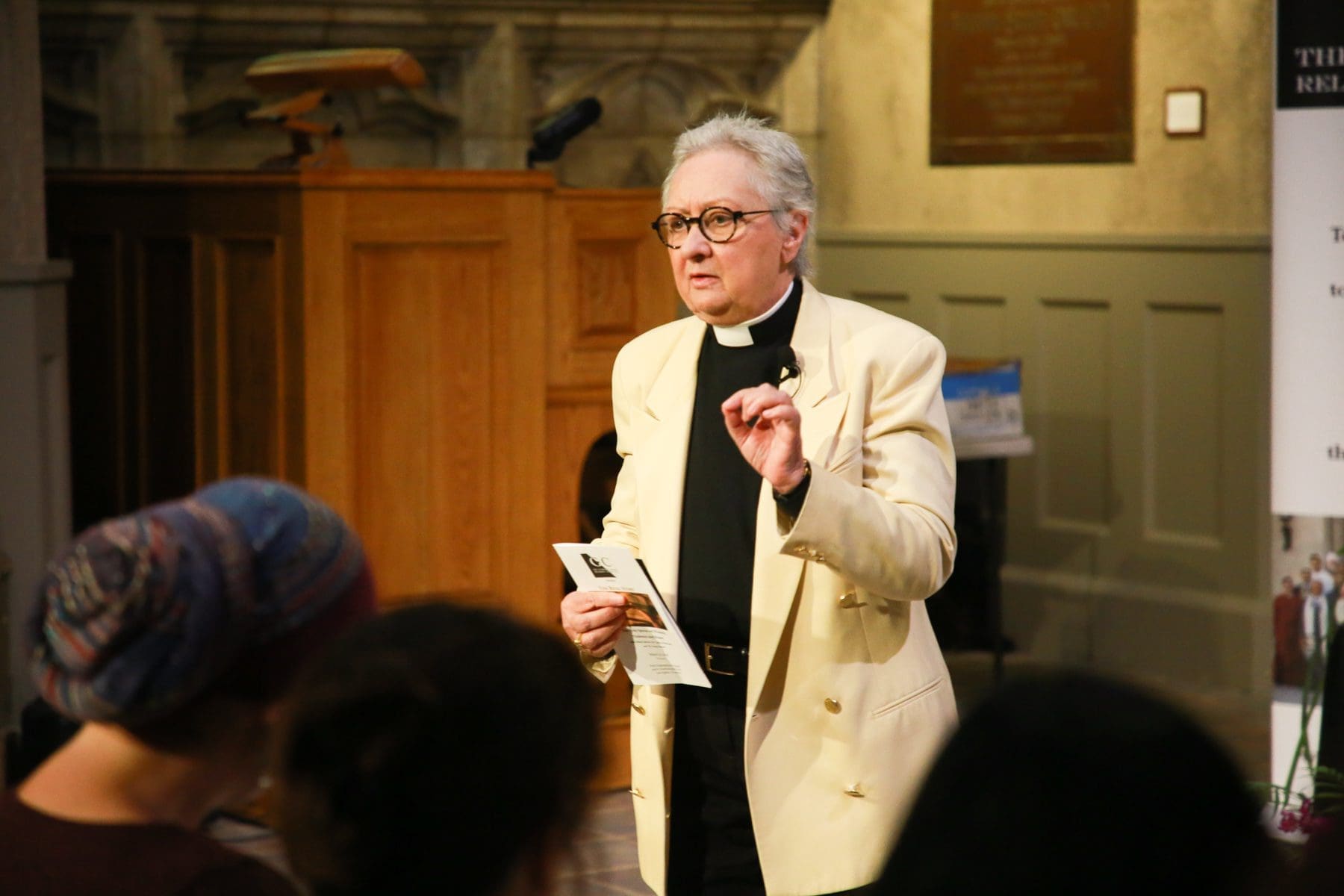
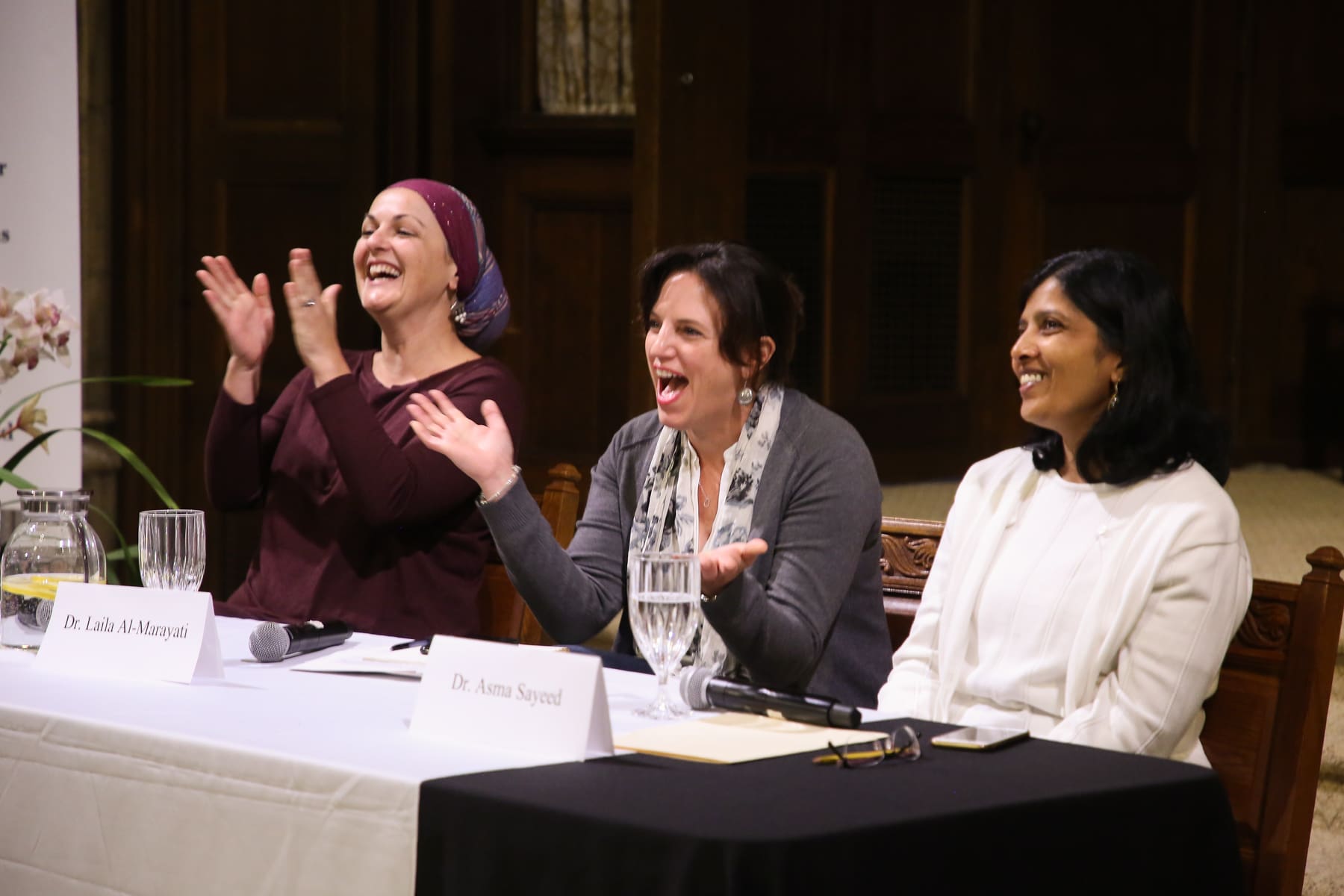
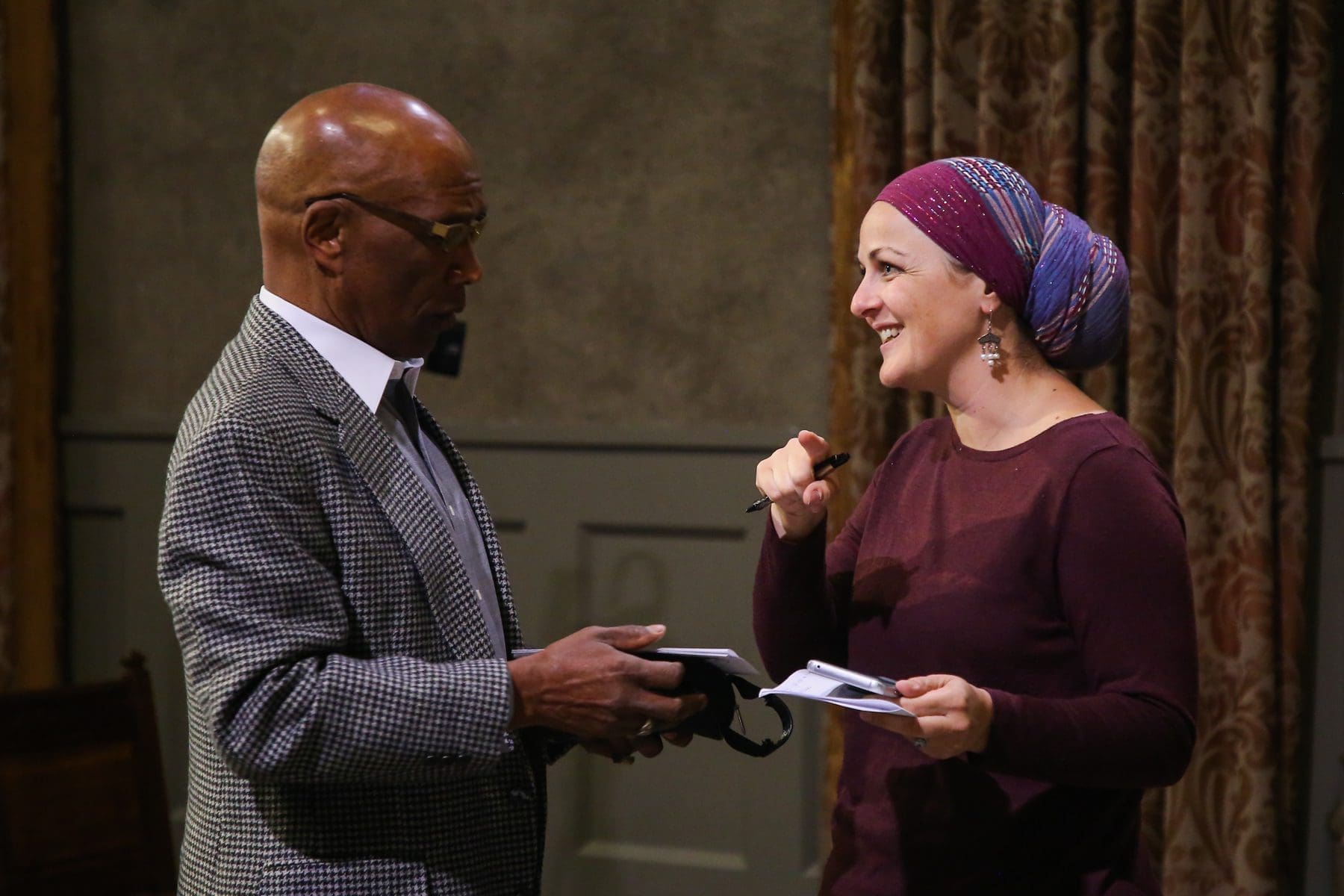
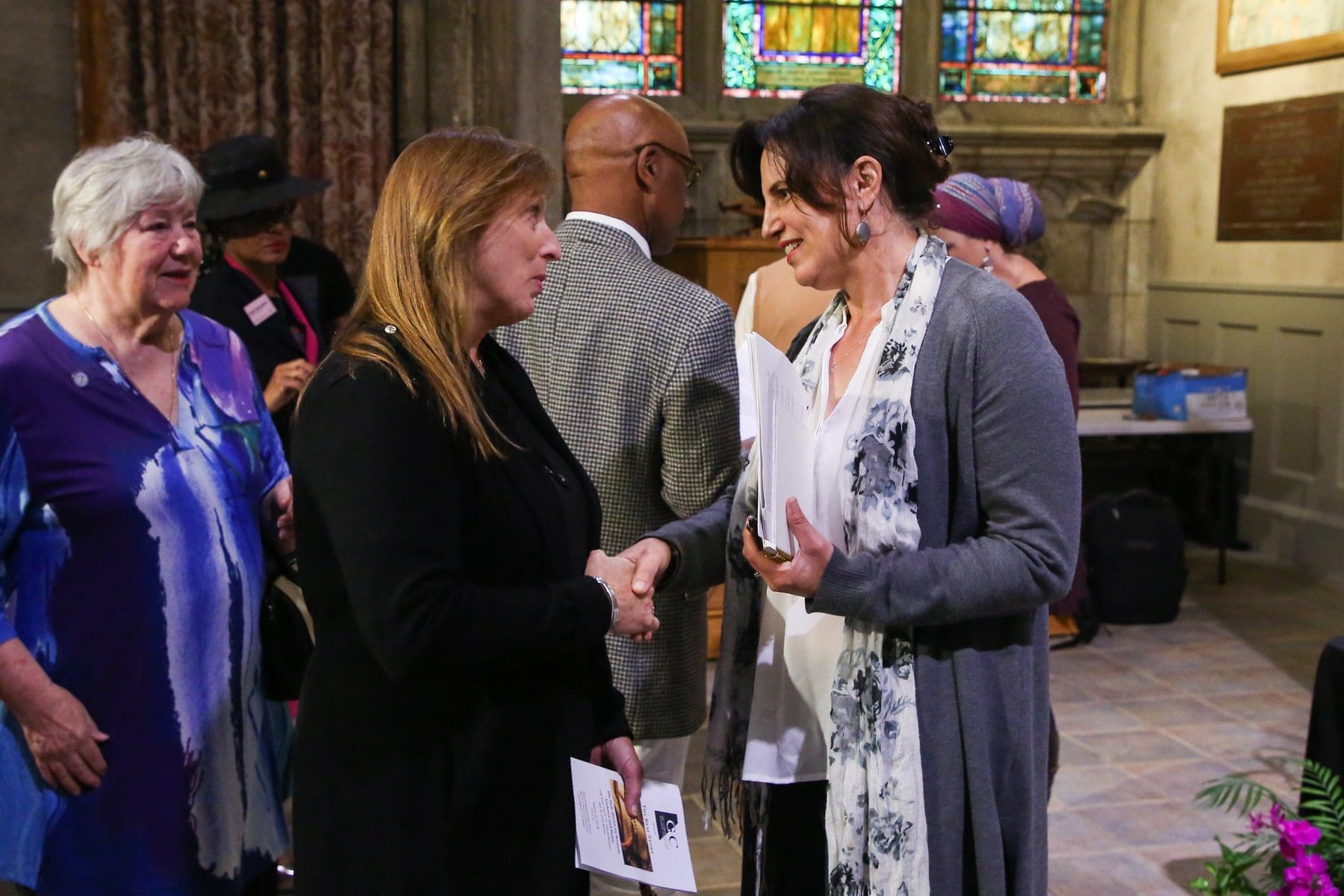
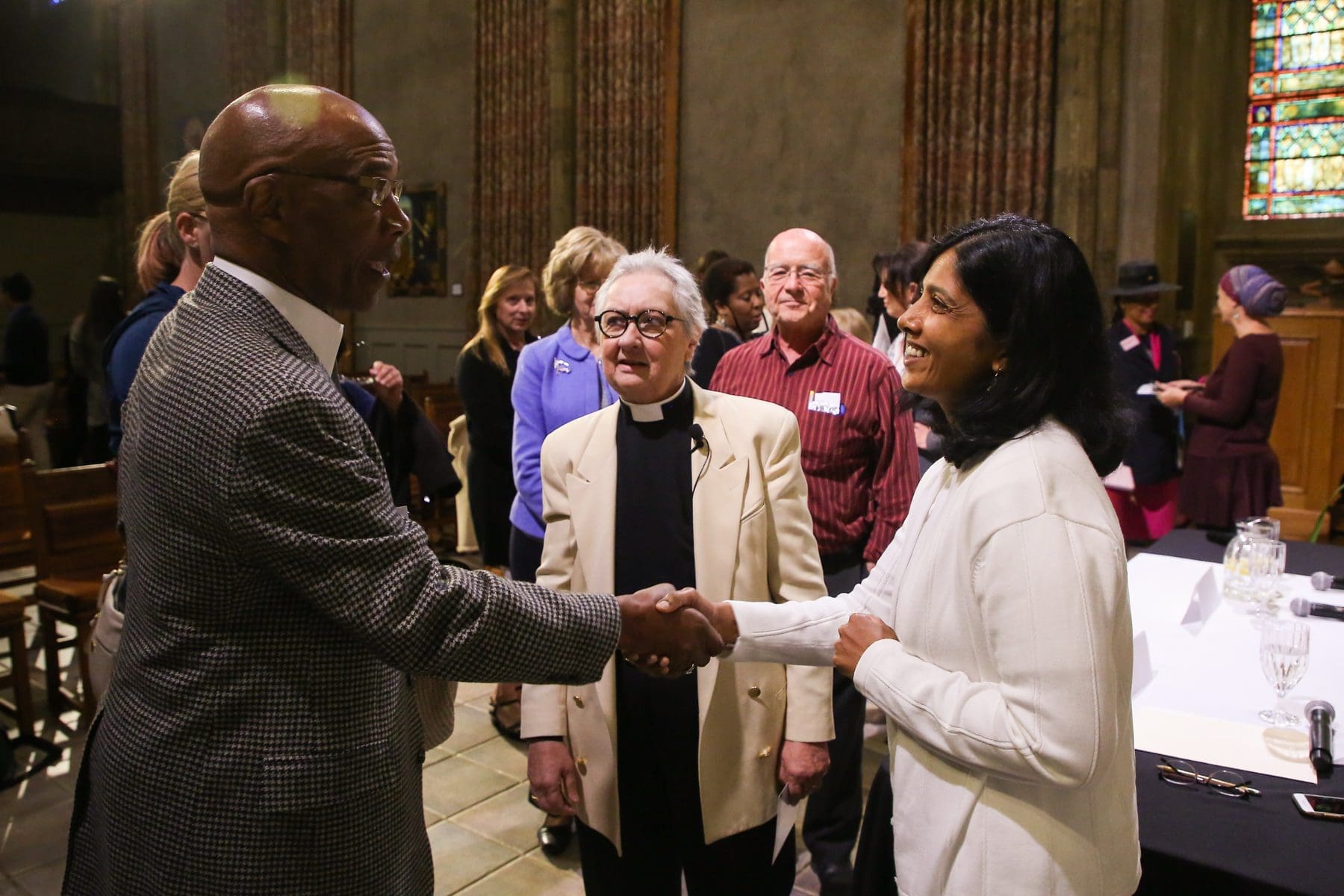
The Real Story: What Three Leading Muslim Women Have to Teach Us
about
The Holy Qur’an, Women, Violence and Peace
with
Edina Lekovic
Dr. Laila Al-Marayati, MD
Dr. Asma Sayeed, Ph. D
by Dr. Lo Sprague
Edina Lekovic, wife and mother, activist and well-known spokesperson for the Muslim community, spoke first. She began with the story of being a Muslim teenager growing up with only the media’s definition of what being a Muslim woman meant. Her little girl heart couldn’t imagine constricting into the life they portrayed.
In college, she was confused as she got to know fellow students who claimed their Muslim identity with pride. Her curiosity kicked in. She finally decided to read the Qur’an for herself.
That’s when everything changed.
“Contrary to the picture that I grew up with, what I found when I read the Qur’an was a message of liberation and equity,” Edina said.
I wondered if I had heard her correctly.
“While I was born a Muslim, that is the reason that I decide to stay a Muslim and to own my Muslim identity and – to be a practicing Muslim today.”
She recounted finding the Qur’an and the Story of Creation in it rooted in gender neutrality. She came alive when she read that God created one soul and out of that soul created its mate; and that Adam and Eve were equally responsible for eating the forbidden fruit.
This certainly did not match the stereotypes of the Qur’an that most of the people in the room had come to know. No wonder Edina was captivated by the dignity afforded men and women in this sacred text.
She went on to help those of us listening to push our assumptions aside even further. In the violent world in 609 BC, where women were routinely brutalized and murdered the Qur’an addressed and forbade many of these horrific practices and created a foundation upon which women could actually become participants in this world through providing them unheard of explicit economic and marital rights and protections.
The Qur’an spelled out a woman’s right to marry whomever she chose, to divorce if necessary, to keep her own name and family affiliations, to work for money if she chose and keep it for herself, and many other rights that provided for her financial protection in ways unheard of 15 centuries ago.
The split, the complication, is that the Qur’an is embedded in a culture that existed long before it came into being that, in spite of these teachings of equity and compassion, continues on with insidious violence and misogyny. Yet, Edina was quick to add that even with these cultural pressures, Muslim women over the centuries have been scholars and heads of state and jurists and the founder of the first university in the world.
Both worlds, of violence and of elevation and equity, continue to exist at the same time. The Qur’an has not yet been able to over-come the violence it was interjected into.
Already there was much to ponder. And Edina introduced much more. Please view the tape – more than once.
Dr. Laila Al-Marayati, physician and activist, mother and wife, and international representative for the United States under President Clinton and Former First Lady Hillary Rodham Clinton, spoke next.
Her experience as a physician and an international figure speaking on behalf of women’s rights around the world became clear as she focused on several key themes that related to the religious aspect of violence against women and girls.
“The foundational principles of Islam that govern all relationships all the time are Mercy and Justice. God even says in the Qur’an that He willed unto Himself the Law of Mercy – so that if that is God’s criterion for Himself, that is for all of us as well. Anything that violates those principles then, by definition, cannot be Islamic. No matter what anybody says about it – if it does not embody Mercy and Justice, it by definition is not Islamic.”
“This includes any acts of aggression or violence towards others. Even when we talk about acts of self -defense on the part of Muslims. They must be governed by self-restraint.”
That was absolutely clear.
Laila immediately also stressed the importance of individuals having a deep and thorough knowledge the Qur’an and the Hadith if they’re going to get traction addressing the coupling of religion and violence.
The Qur’an is still held by Muslims throughout the world to be the literal word of God written down 1400 years ago, and the Hadith are the body of sayings and actions ascribed to the Prophet Muhammed that were written down two hundred years after the Prophet’s death. Both play key roles in securing women’s rights.
Laila delved into the role of violence against women as a larger cultural issue. Religious leaders have the power to support negative views of women, or like the Prophet, speak out against them and live in a manner that bespeaks respect and gender equity. She gave the powerful timely example of the practice of female genital mutilation being portrayed as a religious issue without there being any religious justification for it what-so-ever. As religiously literate Muslim women scholars are pushing back, many of their male counter-parts are joining in.” Trolls” and others acting as if the women don’t know their own faith are being forced to back down when confronted with knowledgeable responses.
“Women are finding ways thru literacy of their own religion to challenge the status quo without having to abandon Islam which has often been what we have been encouraged to do: ’Just don’t be Muslim anymore because it is bad for women.’ As women cannot always wait for the predominantly male leadership to advocate for them, they advocate for themselves to affect change.”
Dr. Asma Sayeed brought yet another perspective to the conversation as a true Muslim scholar and director of Islamic Studies who focusses on issues of women and Islam. She put both the Qur’an and issues of women in context laying out the history of how Muslim communities came to understand the Qur’an in part through the help of Jewish and Christian scholars in the 7th and 8th century to whom Muslim scholars turned to teach them about how to interpret their scared text.
Asma then went through specific challenging texts: on Women’s Testimony; Women and Inheritance; and Marital Discord. By contextualizing these in the culture in which they were written, she offered a perspective that the first two were intended to include women instead of limiting them. The third of these texts and by far the most difficult – often popularly called “The Beating Verse” – is not about abuse. “NO Muslim scholar across history with any degree of authority has ever understood this verse as divine sanction for wife abuse.
She used this verse especially to point to the necessity of looking to the example of the Prophet, himself, who was never abusive to his wives or the women in his household. In the most difficult moments of marital strife, one has to go through a series of efforts that end in a tap not a blow.
Asma also spoke to the real danger and history of judges and patriarchal leaders interpreting this verse according to their own misogyny and anger.
“A very exciting more modern phenomenon – primarily in the 20th Century – is that women are becoming engaged in exegesis and interpretation as scholars of the Qur’an and attempting to re-interpret verses in light of what they see as the message of gender equity that’s enshrined in the Quran. The weight given to these interpretations by women scholars depend on a number of conditions which she listed.
Edina, Laila and Asma engaged in a poignant and forthright conversation among themselves that was rich and insightful. They shared their sense of abhorrence at the violence in the Qur’an and how they came to understand it as a reflection of the culture of brutality into which the Qur’an came – not as a sanctioning of that violence. They answered concerns that many in the audience felt but could not yet articulate. Their conversation was followed by excellent questions.
